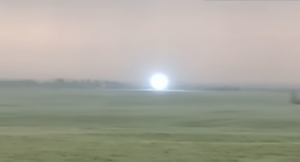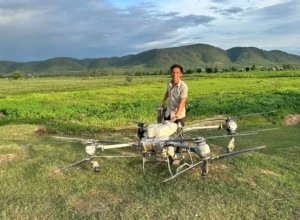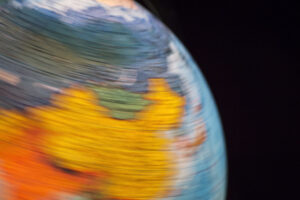I hated selfies for a long time.
It wasn’t because I had a problem with photography, either. My 80-year-old father has been snapping photos his entire life, especially of our family, so I’ve never felt uncomfortable in front of a camera.
I vividly remember the strange smells of the darkroom where he developed his film in a small shack behind our house, and I loved the mechanical snaps and whirring clicks of his Canon F-1, which felt so heavy and satisfying in my young hands.
When smart phones became ubiquitous during my college years, with their tiny lenses and large screens, I was slow to adopt them as “real” cameras. And I loathed selfies. My dad’s reluctance to step in front of the camera himself — to my mom’s constant frustration — imprinted me with a moral code against turning the camera around.
Eventually, I changed my tune for one simple reason: girlfriends.

Photo: Shutterstock
A deeper significance
Many times, I’d be on a trip with my significant other, usually in a beautiful outdoor place with no one around to help snap a photo. What do you do? You turn the phone around, stretch your arm out as far as possible, and use one hand to capture the moment together — and maybe squeeze some killer views into the background.
My reason for surrendering to this phenomenon was simple: I didn’t like selfies, but I wanted to preserve more than just the physical setting. I wanted to show that I, and this person so special to me, had been there together.
According to new research in Social Psychological and Personality Science, that’s exactly why many people take selfies: to capture the deeper meaning of events.

People take selfies to capture an event’s significance, research says, whereas normal photos get used for a physical experience. Photo: Shutterstock
Selfies? Or simply 3rd-person photography?
To better understand why we take selfies, researchers from the U.S., Germany, and Canada conducted six studies involving more than 2,100 participants.
Each of those six studies targeted a specific aspect of photo-taking, focused on the choice between taking a selfie or a normal photo (a.k.a. first-person).
The first study tested whether people take selfies to capture the meaning of a moment, rather than the physical experience of it. The second and third asked participants to read hypothetical scenarios and report what type of photo (selfie or first-person) they’d take, depending on their goal.
With the fourth and fifth studies, researchers then brought the experiment to real images posted on Instagram, and quizzed users about their reasons for posting specific photos. The final study tested whether people liked their photos more when the perspective matched their intention.
“Not only do we find that most people take both types of photos in different situations, but that people also differ across situations in whether their goal for taking the photo is to capture the physical experience of the moment or the bigger meaning of the moment in their life,” lead author Zachary Niese, of the University of Tübingen, told Neuroscience News.

Photo: Shutterstock
The stigma of selfies
While ubiquitous around the world, selfies continue to hold a certain stigma among many people, Niese said in the article.
Perhaps part of the problem of the negative perception of selfies lies in the name. It describes something inherently self-centered — rather than simply a change of perspective.
For example, until reading this study, I’d never considered the idea of normal photos as a first-person perspective and selfies as the third-person. Merely by changing the name, I understand the absurdity of criticizing how and why we take photos. It’s literally just a change of viewpoint.
“Taking and posting pictures is a part of everyday life for many people,” Niese said. “While there is sometimes derision about photo-taking practices in popular culture, personal photos have the potential to help people reconnect to their past experiences and build their self-narratives.”
I still don’t like selfies much. I prefer to stand behind the camera instead of in front of it.
But there’s probably ample room for both in the broad field of artistic expression.

Photo: Shutterstock






